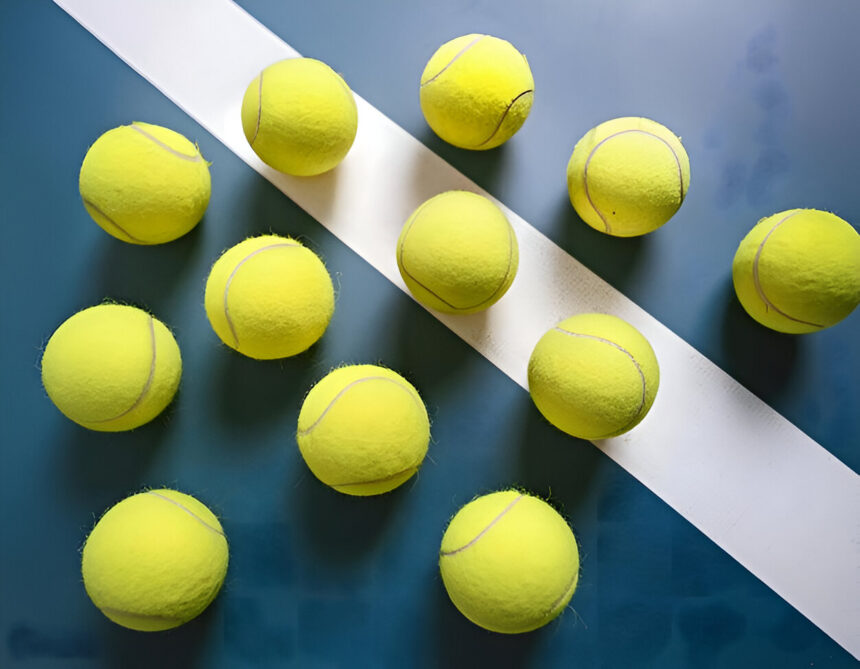Padel, a racquet sport that has gained immense popularity in recent years, relies heavily on the quality of equipment used, including the padel balls. Padel balls play a crucial role in the game, affecting the speed, bounce, and overall performance on the court. In this comprehensive guide, we will delve into everything you need to know about padel balls, including their characteristics, types, importance, and tips for choosing the right ones for your game.
Characteristics of Padel Balls
Padel balls are specifically designed for the game of padel, a mix between tennis and squash. These balls have unique characteristics that differentiate them from tennis balls, making them suitable for the smaller court and glass walls typical of padel. Some key characteristics of padel balls include:
- Size and Weight: Padel balls are slightly smaller and heavier than tennis balls. They typically have a diameter of 6.35 to 6.77 cm and weigh around 56 to 59.4 grams.
- Pressure: Padel balls are pressurized, meaning they have internal pressure to maintain their bounce and performance on the court. The pressure inside the ball can affect its speed and bounce during play.
- Felt Cover: Padel balls are covered with felt, similar to tennis balls, which provides grip and control when hitting the ball with a padel racket.
- Visibility: Padel balls are usually available in bright colors, such as yellow or orange, to enhance visibility against the glass walls of the court.
Types of Padel Balls
There are different types of padel balls available on the market, each designed for specific playing conditions and player preferences. The main types of padel balls include:
- Regular Duty Balls: These are the standard padel balls used for regular play on indoor or outdoor courts. They offer a good balance of speed and bounce, suitable for most players.
- High Altitude Balls: Designed for playing at high altitudes where the air pressure is lower, high altitude padel balls have a different internal pressure to compensate for the lower atmospheric pressure.
- Stage 1 Balls: Also known as beginner or training balls, stage 1 padel balls are softer and lighter, making them ideal for beginners, children, or practice sessions.
Importance of Choosing the Right Padel Balls
Choosing the right padel balls is essential for maintaining the integrity of the game and ensuring optimal performance on the court. The selection of padel balls can impact various aspects of the game, including:
- Bounce: The quality and pressure of the padel ball can influence the bounce on different surfaces, affecting the pace and trajectory of shots during rallies.
- Speed: Padel balls with higher pressure or different internal constructions can result in faster shots, requiring players to adjust their timing and technique accordingly.
- Durability: Quality padel balls are more durable and resistant to wear and tear, providing consistent performance throughout extended play sessions.
- Control: The feel and grip of the padel ball’s felt cover can affect the player’s control over their shots, especially when applying spin or power.
Tips for Choosing the Right Padel Balls
When selecting padel balls for your game, consider the following tips to ensure you make the best choice:
- Check the Pressure: Opt for padel balls with consistent pressure levels to ensure uniform bounce and performance on the court.
- Consider the Surface: Different padel balls may perform better on specific court surfaces, such as artificial grass, clay, or indoor courts. Choose balls that suit the playing conditions.
- Try Different Brands: Experiment with various padel ball brands to find the ones that complement your playing style and preferences.
- Buy in Bulk: Save money and ensure you have an ample supply of padel balls by purchasing them in bulk quantities.
- Consult with Experts: Seek advice from experienced padel players or coaches to get recommendations on the best padel balls for your skill level and playing environment.
Conclusion
In conclusion, padel balls are an essential component of the game, influencing the speed, bounce, and overall performance on the court. By understanding the characteristics, types, and importance of padel balls, players can make informed decisions when selecting the right balls for their game. Whether you are a beginner or a seasoned player, choosing high-quality padel balls tailored to your needs can enhance your playing experience and elevate your performance on the padel court.





